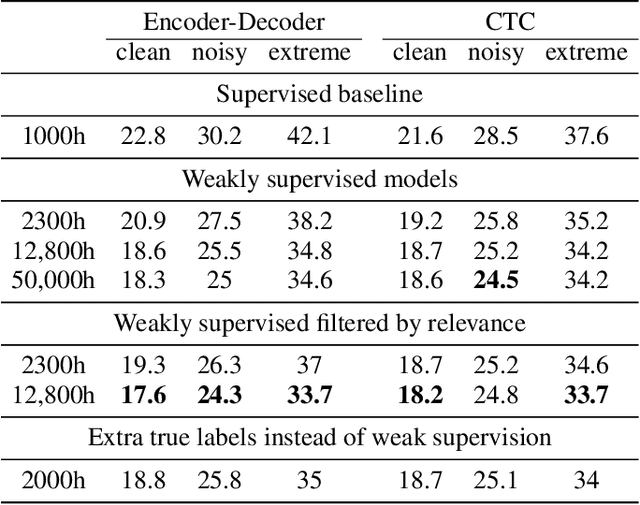Training ASR models by Generation of Contextual Information
Paper and Code
Oct 27, 2019



Supervised ASR models have reached unprecedented levels of accuracy, thanks in part to ever-increasing amounts of labelled training data. However, in many applications and locales, only moderate amounts of data are available, which has led to a surge in semi- and weakly-supervised learning research. In this paper, we conduct a large-scale study evaluating the effectiveness of weakly-supervised learning for speech recognition by using loosely related contextual information as a surrogate for ground-truth labels. For weakly supervised training, we use 50k hours of public English social media videos along with their respective titles and post text to train an encoder-decoder transformer model. Our best encoder-decoder models achieve an average of 20.8% WER reduction over a 1000 hours supervised baseline, and an average of 13.4% WER reduction when using only the weakly supervised encoder for CTC fine-tuning. Our results show that our setup for weak supervision improved both the encoder acoustic representations as well as the decoder language generation abilities.
 Add to Chrome
Add to Chrome Add to Firefox
Add to Firefox Add to Edge
Add to Edge